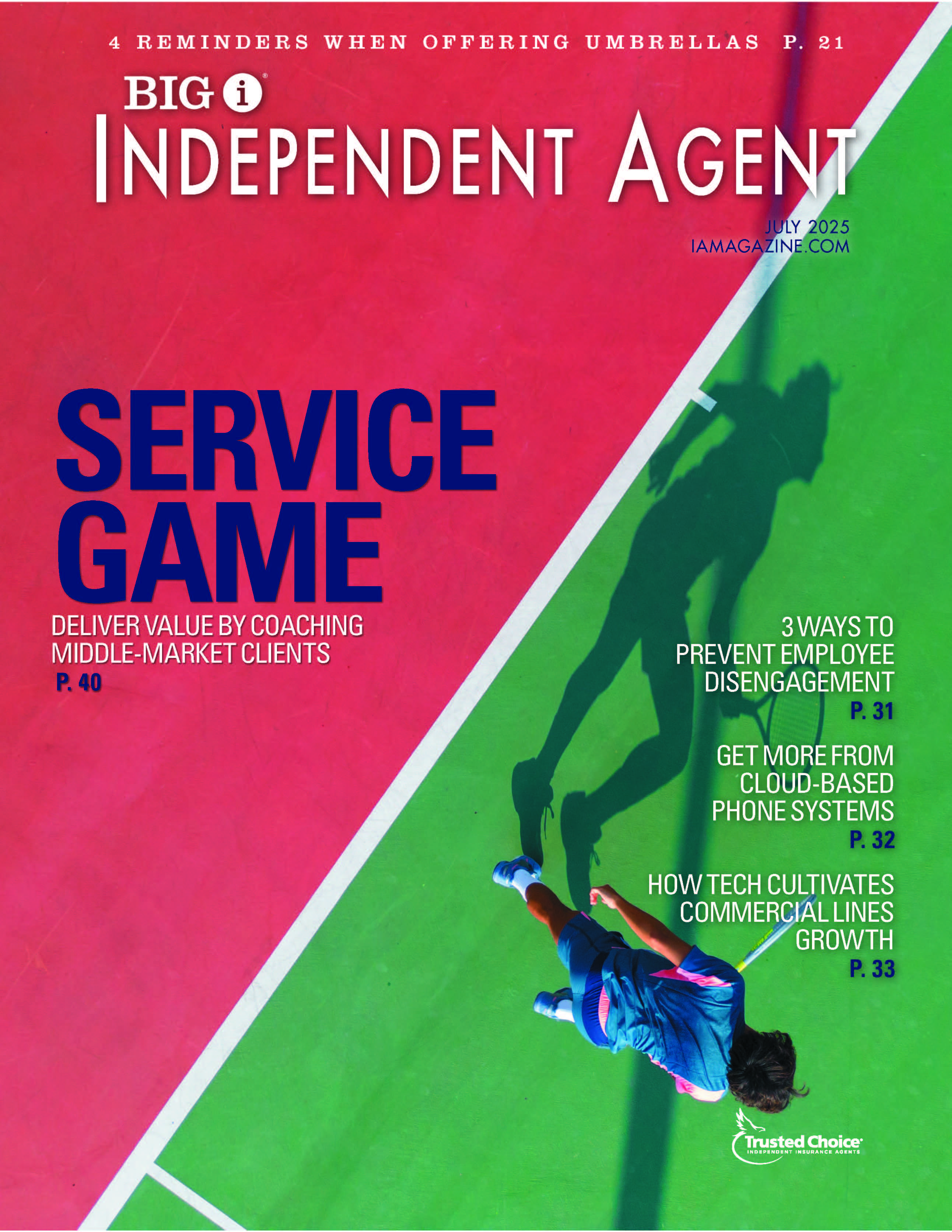Embracing DE&I is a Journey of Understanding and Transformation

By: Jeff O’Shaughnessy
The business case for diversity, equity and inclusion (DE&I) is undeniable. The ability of an organization to give life to these three words is a keystone to employee retention, talent recruitment and future sustainable success.
The call for DE&I within our corporate culture has never been more important. While my personal journey has not been marked by many of the challenges faced by others, in recent years, my eyes have been opened and I have come to recognize the profound importance of fostering a more diverse and inclusive work environment.
Over the past 20-plus years as a leader in the insurance industry, I have had the privilege of working alongside many people from diverse backgrounds. I have also had the opportunity to experience a wide spectrum of inclusivity, seeing examples of how to foster inclusiveness—and how not to. While many people likely consider their organization’s culture to be one of inclusiveness, I’d submit that we are at a time when leaders within organizations need to continue to make inclusiveness a priority and fully integrate it throughout their business.
Here are three reasons why I believe DE&I is so important:
1) Diverse teams bring a spectrum of perspectives, ideas and skills that can propel innovation and creativity. Recognizing—and embracing—the unique strengths each individual can bring to the team contributes to a more dynamic and resilient workforce. Ultimately, this leads to an organization that is better equipped to navigate the ever-evolving challenges of the modern business landscape.
2) Equity forms the backbone of a fair and just workplace. Acknowledging and addressing disparities ensures that opportunities are accessible to all, irrespective of background. This commitment to fairness not only enhances employee satisfaction but also attracts and retains a diverse pool of talent. It also helps strengthen the organization’s ability to thrive in a global environment.
3) Inclusion is the glue that binds diversity and equity together. It isn’t enough to merely have a diverse workforce. An inclusive environment actively promotes the involvement and collaboration of every individual. A workplace culture that encourages open dialogue and values diverse perspectives fosters a sense of belonging, which is an essential part of today’s workplace environment.
One area of inclusion that I have focused on is the concept of allyship. Allyship is the key to creating inclusive workplaces. It’s a never-ending process that focuses on building and fostering supportive relationships with those who, for many different reasons, may feel underrepresented.
This approach creates a platform for other voices to be heard. It’s a way for colleagues to support each other and help connect and include other perspectives. It encourages people who enjoy the privilege of a voice to find ways to include others who might be more hesitant or less accepted. For a business, it’s an opportunity to welcome and embrace the thoughts and actions of many, which will in turn positively influence and impact others, as well as the organization.
Here are a few ways to be an ally:
- Help amplify. Perhaps you previously had a discussion with someone or know they have thoughts or ideas regarding a specific topic but they are reluctant to speak up in a larger group. Encourage others in a meeting to participate.
- Become an advocate. Listen to, understand and learn as much as possible about the challenges of those who feel less included and find ways to help promote and encourage others.
- Understand impact versus intent. Be thoughtful and purposeful with your words and actions and consider how they will be received by others. Create an environment that is welcoming to all and considers the viewpoints of others.
- See something, say something. If you see something that doesn’t seem right, be an “upstander” and call it out or redirect any potentially harmful comments or conversations.
- Celebrate good ideas. Acknowledge and give credit to others for their ideas and expertise in front of others.
- Create community. Find ways to unite both disparate and unified employee groups by finding common goals and celebrating each team member’s uniqueness.
My journey toward understanding the importance of DE&I has been transformative. I appreciate the many different people responsible for opening my eyes and helping me on my personal development journey. I also appreciate my team embracing the power of diverse and inclusive thinking. We are so much better for it.
I strongly encourage you to continue your own journey on personal and professional inclusiveness. The impact for you, too, will be transformative.
Jeff O’Shaughnessy is senior vice president, head of treaty division, at Hartford Steam Boiler.










